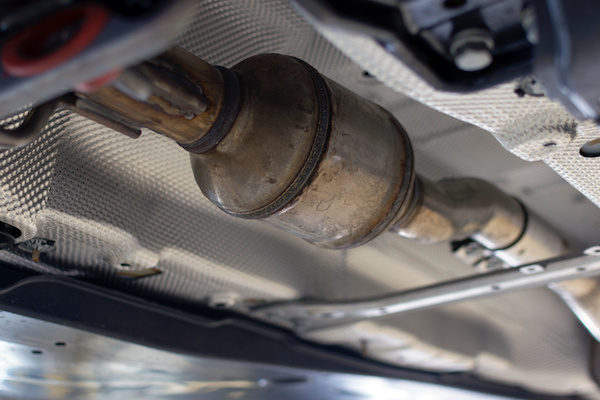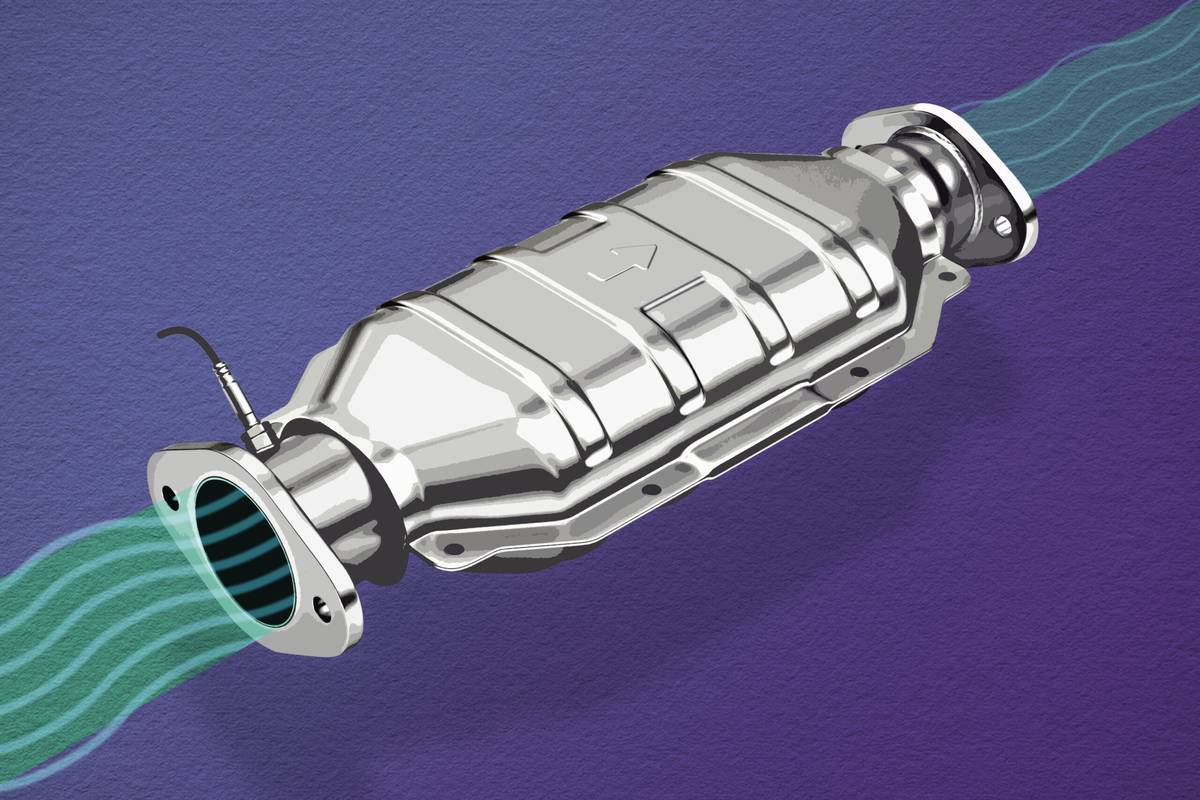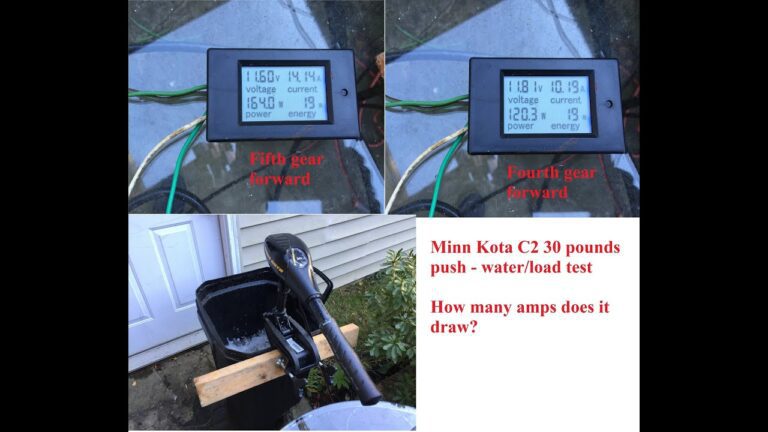Why Is Your Catalytic Converter Failing?
A failing catalytic converter is typically caused by engine misfires or fuel system issues. Both can lead to overheating and damage.
The catalytic converter is an essential component in your vehicle’s emission control system. When it fails, it can result in decreased fuel efficiency, increased emissions, and potential engine damage. In order to prevent catalytic converter failure, it is crucial to address any underlying issues with the engine or fuel system promptly.
Regular maintenance and proper driving habits can help prolong the life of your catalytic converter and ensure your vehicle meets emission standards. Understanding the common causes of catalytic converter failure can help you take proactive steps to keep your vehicle running smoothly.

Credit: www.theautotrends.com
Common Signs Of Catalytic Converter Failure
A failing catalytic converter can lead to a range of frustrating issues for car owners. Understanding the common signs of catalytic converter failure early can help you avoid costly repairs and ensure your vehicle continues to run smoothly.
Warning Lights
When the catalytic converter is not functioning properly, the “Check Engine” light may illuminate on the dashboard. This warning can indicate a variety of issues, but it is important to address it promptly to prevent further damage to the catalytic converter and other components of the vehicle.
Decreased Performance
An underperforming catalytic converter can cause your car to experience decreased power and acceleration. Additionally, you may notice a reduction in fuel efficiency and an increase in exhaust emissions. If you observe these symptoms, it is crucial to have your vehicle inspected by a qualified mechanic to diagnose and address the issue promptly.
Causes Of Catalytic Converter Failure
Catalytic converter failure can be caused by issues such as engine misfires, excessive oil consumption, contaminated fuel, or a malfunctioning oxygen sensor. These factors can lead to a decrease in converter efficiency and eventually result in failure. Keep your vehicle well-maintained to prevent catalytic converter issues.
Engine Misfires
Engine misfires can lead to catalytic converter failure due to unburned fuel entering the exhaust system.
Fuel System Issues
Fuel system issues such as leaking injectors can cause too much fuel to reach the catalytic converter.
Excessive Oil Consumption
Excessive oil consumption can lead to catalytic converter failure as oil residues can clog the converter.
Impact Of Catalytic Converter Failure
Catalytic converter failure can result from engine misfires, improper fuel mixture, or oil consumption, leading to decreased performance and increased emissions. Other factors, like physical damage or excessive heat, can also contribute to the breakdown of the converter, causing it to malfunction and emit harmful pollutants into the environment.
Increased Emissions
Catalytic converter failure leads to release of harmful pollutants like carbon monoxide and hydrocarbons.
This increases pollution levels that can harm environment and contribute to climate change.
Regular maintenance can prevent excessive emissions and protect the environment.
Legal Consequences
Failing catalytic converters might lead to failing emissions tests.
Legal penalties for operating a vehicle with a faulty converter can include fines or license suspension.
How To Prevent Catalytic Converter Failure
Preventing catalytic converter failure is crucial for ensuring the efficient functioning of your vehicle and minimizing costly repairs. By following a few simple practices, you can extend the lifespan of your catalytic converter and avoid potential issues. Here’s how to prevent catalytic converter failure:
Regular Maintenance
Maintaining regular maintenance on your vehicle is essential for preserving the condition of your catalytic converter. Ensure that your car undergoes scheduled tune-ups and inspections, including checking for any signs of damage or deterioration in the catalytic converter. By identifying and addressing any potential issues early on, you can prevent more significant problems from arising.
Using Proper Fuel
Using the correct type of fuel is vital for the health of your catalytic converter. Make sure to use fuel that is recommended by your vehicle’s manufacturer to prevent the buildup of harmful deposits that can lead to converter failure.
Addressing Engine Issues
Promptly addressing any engine issues can help prevent stress on the catalytic converter. If you notice any irregular engine noises or performance issues, have your vehicle inspected by a qualified mechanic to identify and rectify the problem before it affects the converter.
Replacing A Failed Catalytic Converter
When it comes to the performance of your vehicle, a failed catalytic converter can have a significant impact. The catalytic converter plays a crucial role in reducing harmful emissions from your car’s exhaust system. Unfortunately, over time, this vital component can wear out and fail, leading to decreased fuel efficiency, increased exhaust emissions, and potentially even engine damage. In this section, we will discuss the importance of professional installation when replacing a failed catalytic converter, as well as how to choose the right replacement and recycle the old converter.
Professional Installation
Replacing a catalytic converter is not a task that should be taken lightly. It requires proper knowledge, tools, and expertise to ensure a successful installation. Hiring a professional technician for the job can save you time, effort, and potential headaches. They have the experience and know-how to handle the intricacies of your vehicle’s exhaust system, as well as access to the necessary equipment. By entrusting the installation to a professional, you can have peace of mind knowing that the new catalytic converter is installed correctly and will function optimally.
Choosing The Right Replacement
When it comes to choosing a replacement catalytic converter, there are a few factors to consider. First and foremost, you need to ensure that the replacement converter is compatible with your specific make and model of vehicle. Each vehicle has unique emission requirements and specifications, and using the wrong converter can lead to further complications and even potential legal issues. It is advisable to consult the manufacturer’s guidelines or seek the advice of a professional technician to determine the correct replacement option.
Additionally, it is essential to choose a high-quality replacement catalytic converter that meets all relevant industry standards. Investing in a reliable converter ensures long-term durability, performance, and compliance with emissions regulations.
Old Converter Recycling
When replacing a failed catalytic converter, it is important to dispose of the old converter responsibly. Catalytic converters contain valuable metals such as platinum, palladium, and rhodium. Recycling these metals not only helps conserve natural resources but also reduces the environmental impact associated with mining and refining new metals.
Many automotive supply stores, scrap yards, and recycling centers accept old catalytic converters for recycling purposes. Some even offer compensation for the valuable metals within the converter. By recycling the old converter, you can contribute to a greener and more sustainable future.
In conclusion, replacing a failed catalytic converter is a critical step in maintaining the performance and environmental friendliness of your vehicle. Professional installation ensures proper functionality, while choosing the right replacement and recycling the old converter contribute to long-term effectiveness and sustainability. By following these steps, you can enjoy a smoother-running vehicle while minimizing your impact on the environment.

Credit: meridianautocare.com

Credit: www.cars.com
Frequently Asked Questions On Why Is Your Catalytic Converter Failing?
What Causes A Catalytic Convertor To Go Bad?
Common causes for a catalytic converter failure include engine misfires, excess fuel entering the exhaust system, and overheating.
What Is Most Likely To Cause Catalytic Converter Failure?
Common causes of catalytic converter failure include engine misfires, excessive fuel consumption, and oil or coolant leaks.
What Are 2 Symptoms Of A Failed Catalytic Converter?
Two symptoms of a failed catalytic converter are a decrease in engine performance and the appearance of a strong sulfur or rotten egg smell.
How Can You Prevent A Catalytic Converter From Failing?
To prevent catalytic converter failure: 1. Use high-quality fuel and engine oil. 2. Avoid abrupt acceleration and excessive idling. 3. Schedule regular engine maintenance. 4. Replace faulty oxygen sensors promptly. 5. Keep the exhaust system and converter clean.
Conclusion
Understanding the causes of catalytic converter failure is essential for vehicle owners. By being aware of the potential issues, such as engine misfiring or fuel contaminants, individuals can take proactive measures to maintain their catalytic converters. With proper care and regular maintenance, one can prolong the lifespan of the catalytic converter and ensure the overall efficiency of their vehicle.


